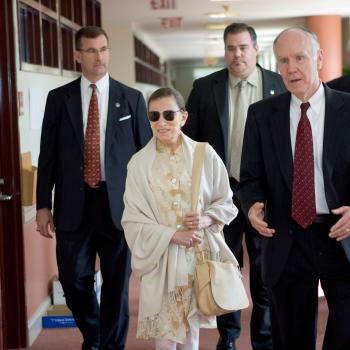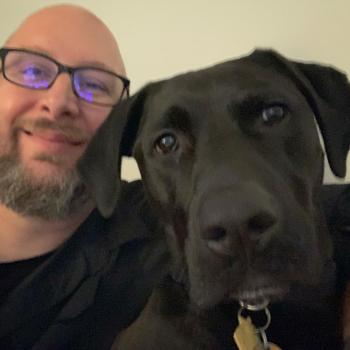Things I know about me:
- I know how to listen so that you know you’ve been heard.
- I know that if you are in crisis, I will not let your fists stop me.
- I know that when I need to, I can outrun three out of four paramedics, two RNs, one other tech, and a unit secretary to reach a naked, bleeding, psychotic patient who is trying to find his way home.
Working in mental health during a pandemic comes with its own particular set of challenges. Working in mental health during a pandemic while you are training to be a chaplain is its very own world.
The patient above,* whom we’ll call Gerasene, is just one of a large number of recent contacts I’ve had with good people whose mental health has been affected by COVID. Some are convinced they have it. Some are convinced I’m trying to give it to them. Some are convinced COVID itself is a conspiracy, and behind the hospital walls are sinister technicians watching to see how they react.
I cannot, and would not want to, give the impression that I have ever helped anyone alone. I work side by side with the best nurses, techs and providers I have ever known. My job would not be possible without them doing theirs. But I can tell you that my job—Psychiatric Assistant certified in Mental Health First Aid—matters. And the skills I use are the same as the skills we all need to be practicing at home.
One of the first models I learned on the way to my Psychology degree was Maslow’s Hierarchy of Needs. The body of theory built on Maslow can get fairly complex, but at its core is the fundamental truth that you cannot begin to get your higher needs met until you are first safe, hydrated, sheltered and fed. To this I would add that the model is not purely physical. Are you spiritually safe? Are you emotionally hungry? Have you found for your anxious mind some sort of shelter from the storm?
The way you can tell that basic needs are not being met, of course, is to look to the higher functions. How’s your hygiene these days? Are you still praying? When was the last time you reached out to your people? When was the last time you took a good, long walk? When the foundations are crumbling, the whole house leans.
I cannot tell you how times I have cured a patient’s dizziness with Gatorade and a peanut butter sandwich. I cannot tell you how many times I have helped someone through a panic by listening to their story and holding their feelings safely.
If you are in crisis, there is help. This link will take you to a page full of resources from the National Alliance on Mental Illness. If you are not in crisis, and have a little emotional energy to spare, this might be a good time to check in on your people, and see which way their houses lean. Like the song goes, “I am he as you are he as you are me and we are all together”…
Be safe out there. There’s a storm on. And we are all we have.
__________
*Composite patient, not an actual person.













